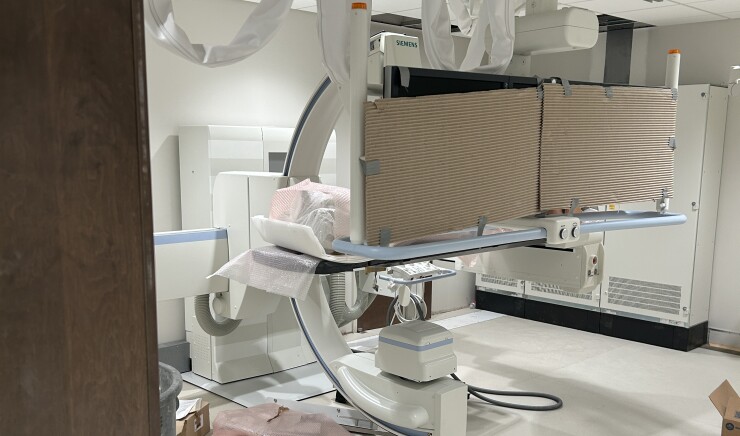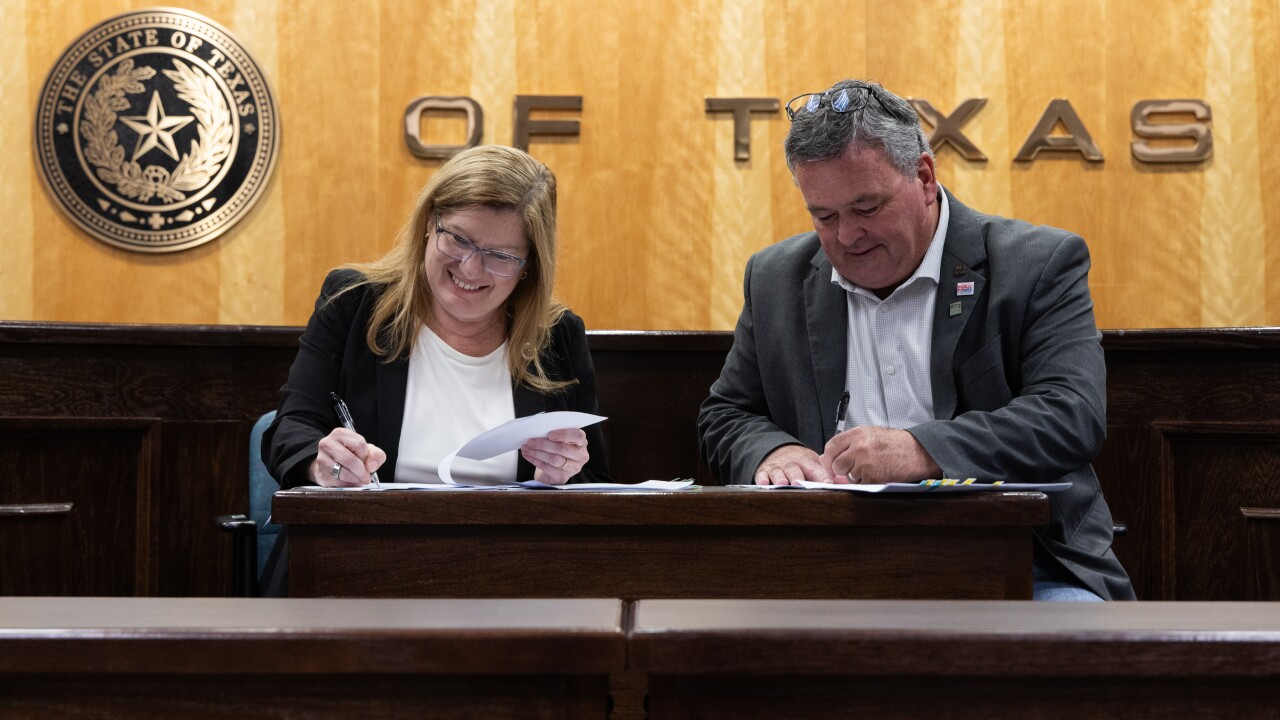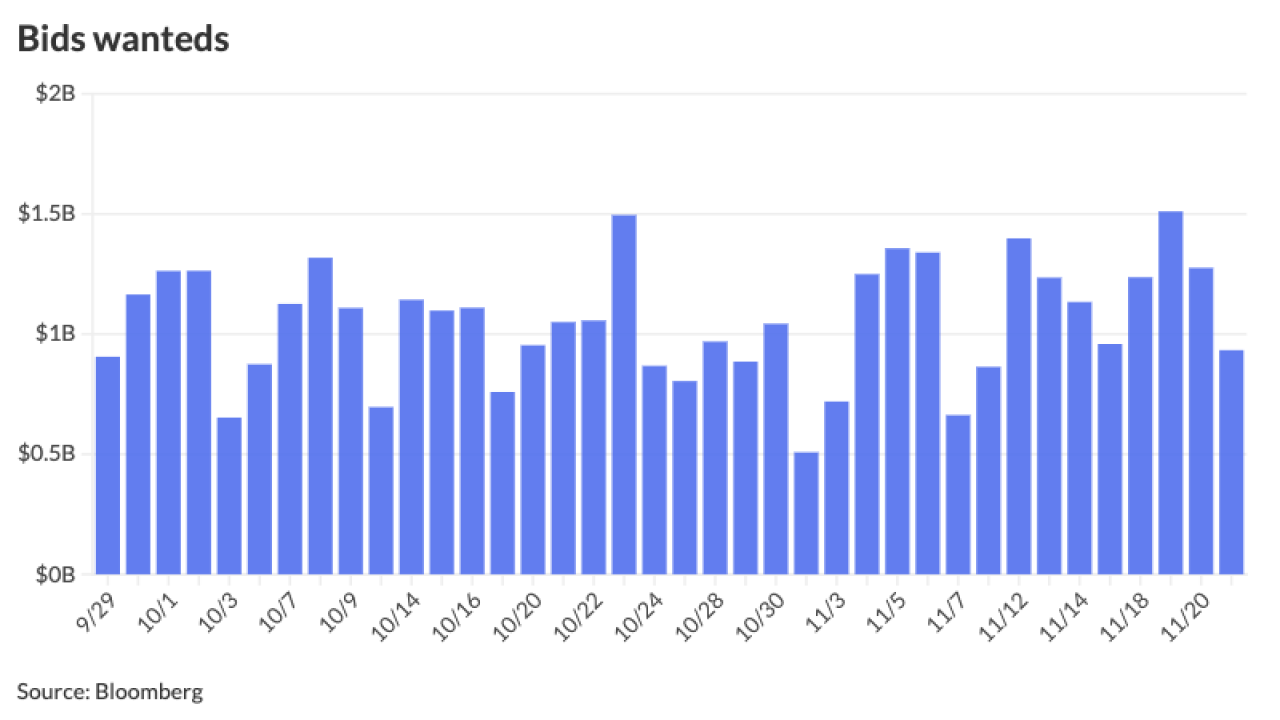
Navajo Health Foundation-Sage Memorial Hospital was already facing a budgetary shortfall when it tapped the muni bond market in 2024 with an $80 million nonrated deal to help complete a new state-of-the-art hospital.
"It all goes back to the finances, that turning point of getting that bond," said Melinda White, CEO of Sage Memorial Hospital. "All the work that went into obtaining that bond: It was very tiresome; there were sleepless nights. When you go through an experience like that, where it is just so stressful, and you come out of it … I like to think of it as: 'We've gone through some tough times, and we have a lot of resilience, and that's where the energy is coming from, as far as all of the new services and everything that we're doing.'"
The investment paid off, she said, as the funding supported new facilities and housing, helping address challenges that Navajo Nation communities and other Native Americans face, such as long-distance travel and limited access to health care.
"It is very challenging to live in a rural area and to receive the healthcare needs, even preventive care. That's how important Sage and the surrounding hospitals are for communities," White said.
The Series 2024 deal, priced through the Arizona Industrial Development Authority, has been named the Health Care Financing category winner in The Bond Buyer's 2025
The deal represents a major landmark in furthering Native American healthcare infrastructure, as tribal governments face hurdles when issuing munis, including tax code restrictions, limited tools and land ownership issues.
The deal also demonstrates a non-profit healthcare provider's ability to leverage nontraditional revenue sources — enabled by tribal contractor status — to secure tax-exempt munis, according to the nominating statement.
The $80 million deal provided a "critical recapitalization of Sage's balance sheet, reimbursing it for previously spent construction costs to build the project," the statement said.
Sage — which serves eight Navajo communities with a population of approximately 23,000 in northeastern Arizona — in 2021 started constructing a new hospital, an employee housing facility, a community room, office space and a medical office facility, some 20 odd years after discussions first started, White said.
The $177 million project included more than 190,000 square feet of facilities, making it one of the biggest rural healthcare capital projects in the area in recent years, said Carson Folk, conduit bond business development officer for the Arizona IDA.
Initially, the project was funded with cash reserves and draws on a line of credit, but Sage knew it needed to seek alternative financing at some point. With this in mind, the hospital began the process of issuing municipal bonds, but faced challenges from the start.
The hospital is a tribal facility under Public Law 93-638, the Indian Self Determination and Education Assistance Act, which allows Native American hospitals to operate independently while still receiving federal funding through agencies such as the Indian Health Service.
Initially, Sage worked with a different investor, who was challenged by waiving sovereign immunity, which the investor believed would improve his/her rights, said Leonard Jones, executive director of municipal capital markets at Blaylock Van.
That was never going to happen, and from there, underwriter Blaylock Van and municipal advisor Kaufman Hall came on board in the fall of 2023 after Sage had worked on the deal for over two years, said John Andersen, senior vice president at Kaufman Hall.
Blaylock Van and Kaufman Hall approached the situation from a standpoint that sovereignty did not need to be waived for investors to feel comfortable, Jones said.
"They had experience, and they were willing to take the challenge of, 'We're going to really work this through.' It was really [a result of] their persistence and constant communication,'" White said.
The firm even brought on legal counsel and hired counsel for investors to ensure they were comfortable without a waiver of sovereign immunity, Jones said.
The hospital's location presented another issue. The hospital is surrounded by the Navajo Nation Reservation. Reservations, though, cannot be mortgaged since they're owned by the federal government.
"It's not like a typical city or county or area that can have its own property taxes and mortgage land," Jones said. "So that's what makes it really difficult."
In this case, though, the hospital was in the Navajo Nation but on land owned by the Presbyterian Church. As a result, investors gained some comfort they would not have had, Jones said.
Additionally, a June 2024 Supreme Court ruling on reimbursements was a positive. "We're trying to sell these bonds for this hospital in the middle of the reservation, where some of the reimbursements from Indian Health Services were going to go up," Jones said.
Investors were further reassured by Sage's risk profile, which includes a "unique security structure utilizing various mortgage pledges, a Deposit Account Control Agreement, payment lockbox, limited sovereign immunity waivers, and many other bespoke features," Andersen said.
Overall, the deal took a few years to complete and was very time-consuming. Every week, Sage, Blaylock, and Kaufman Hall spent hours upon hours working on the bonds' documentation and discussing them, White said.
"The executive team, the attorneys, and our investors and underwriters are all working together on, 'OK, this is what's going to happen.' And there were these constant revisions or updates, and also feasibility studies, because we were bringing in new services," she said.
Sage also had to go through the Arizona IDA, which coached Sage and helped it prepare the documents, White said.
Sage initially applied to the Arizona IDA in May 2022 with a larger project scope, seeking preliminary approval on a $100 million-plus deal. The hospital later revised its application in May 2023 to no more than $80 million after the hospital did some "value engineering and made it leaner [and] more efficient," Folk said.
At that point, Sage received preliminary approval and, in May 2024, returned to seek final approval from the Arizona IDA, which was unanimously granted, he noted.
When Blaylock Van priced the deal on Nov. 19, 2024, for the Arizona IDA on behalf of Sage the $31 million chunk of 7.125% bonds due 2044 priced at 7.375%, while the $49 million piece of 7.625% bonds due 2054 priced at 7.875%.
"The transaction was privately placed with a group of four institutional investors," Andersen said. "Market reception was positive and multiple investors were engaged throughout marketing. In my opinion, investors recognized Sage's importance, the necessity of the project, and the financially sustainable approach to the transaction's design."
"The bond came at a perfect time," White said, and the hospital was completed in August 2024 and opened soon after.
The hospital now provides expanded services, including surgery, dialysis, intensive care and labor and delivery, a boon as previously patients and their families had to travel long distances, sometimes up to 100 miles round-trip, to the next closest facility, per the nominating statement.
The new campus also includes an expanded outpatient clinic and affordable staff housing, key for a hospital operating in a remote rural area, the nominating statement said.
Additionally, the mobile unit gives medical care to patients unable to travel to the hospital, whether because of socioeconomic issues or unpaved or muddy roads, White noted.
"I see it as so important that we continue to expand and we continue to bring more services to Sage," she said. "That's what our plans are for the next five years."
The past three years were a "complete transition" that changed the culture, White said.
"Right now, we're building on the Sage Memorial Hospital experience, and we're really incorporating our way of life with the Navajos, our western medicine, and the traditional, and putting them together … We're on a journey of Diné excellence, and we're going to be able to place both of them parallel," she said.





